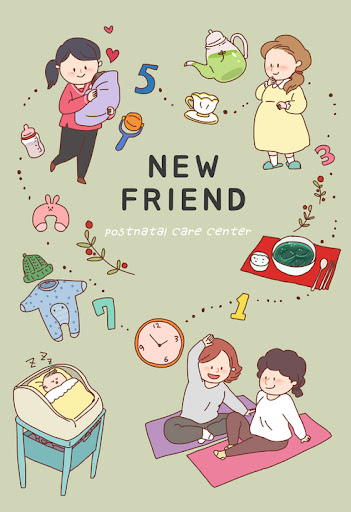
The World of Postnatal Care
Introducing South Korea’s Postnatal Care Centers to Foreigners

Today, I want to talk about postnatal care centers, which are widely used by many women in Korea. Postnatal care offers a period for mothers to rest and recuperate after childbirth. South Korea’s postnatal care centers have a somewhat different system from those in other countries, which I thought would be interesting to introduce to foreigners.
Introduction to the Importance of Postnatal Care and the Concept of Korean
Postnatal Care Centers Postnatal care refers to the services that support the recovery and caregiving of mothers and newborns after childbirth. It aims to assist in the physical, emotional, nutritional, and social recovery of the mother, alleviate fatigue and stress caused by pregnancy and premature labor, and support the healthy growth and development of the newborn.
Korean postnatal care centers are specialized institutions established to achieve these goals. They provide a comfortable and safe environment where mothers and newborns can live their daily lives and rest. Moreover, through various services and programs offered by professionals, they prioritize the health and welfare of mothers and newborns.

Key Factors to Consider When Choosing a Postnatal Care Center
When selecting a postnatal care center, several key factors must be considered. First is the location. The postnatal care center should be situated close enough to ensure rest and recovery for the mother and newborn. It’s also important to check for convenient transportation and the availability of necessary facilities nearby.
Second is the facilities and environment. The postnatal care center should offer a comfortable and safe environment. Clean and pleasant rooms, comfortable beds and bathrooms, and facilities for the safety of newborns are essential.
Third, the quality of professionals and programs is crucial. The postnatal care center should provide various programs and services offered by professionals, promoting the health and well-being of mothers and newborns. Therefore, the expertise and qualifications of the professionals, as well as the diversity and usefulness of the programs, should be reviewed.
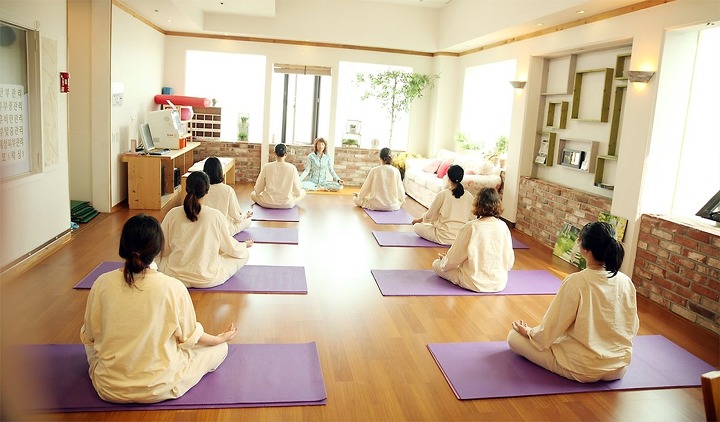
Guidance on Major Services and Programs of Korean Postnatal Care Centers
Korean postnatal care centers offer a variety of services and programs. First are services that assist in physical recovery, including massage, bathing, and yoga. These services relax the mother’s body, relieve fatigue, and promote blood circulation to speed up recovery.
Second, emotional support and counseling are provided. Childbirth can bring about significant changes and emotional stress. Therefore, mothers should receive emotional stability and sufficient counseling. Korean postnatal care centers offer psychological counseling, group therapy, and emotional regulation programs for this purpose.
Third, nutrition management and diet services are critical. Proper nutrition after childbirth is vital for the recovery of the mother and the growth of the newborn. Korean postnatal care centers cooperate with nutritionists to provide customized diet plans and nutrition management, helping mothers establish healthy eating habits and raise healthy newborns.

Customized Nutrition Management and Diet for Mothers
Postnatal care centers offer customized nutrition management and diet plans for mothers, aiding in recovery and the healthy growth of newborns after childbirth. Examples include high-protein foods like soybean sprouts, soybean curd residue, and tuna, which can help mothers regain their strength.
Consuming a variety of fruits and vegetables rich in vitamins and minerals is also important. For instance, oranges, pineapples, avocados, and spinach are rich in vitamin C and folic acid, enhancing the mother’s immune system and energy supply.
Lastly, adequate hydration is crucial. Drinking enough fluids after childbirth helps replenish and maintain the mother’s body’s hydration. Water, as well as various teas like barley tea, omija tea, and yuja tea, are recommended.
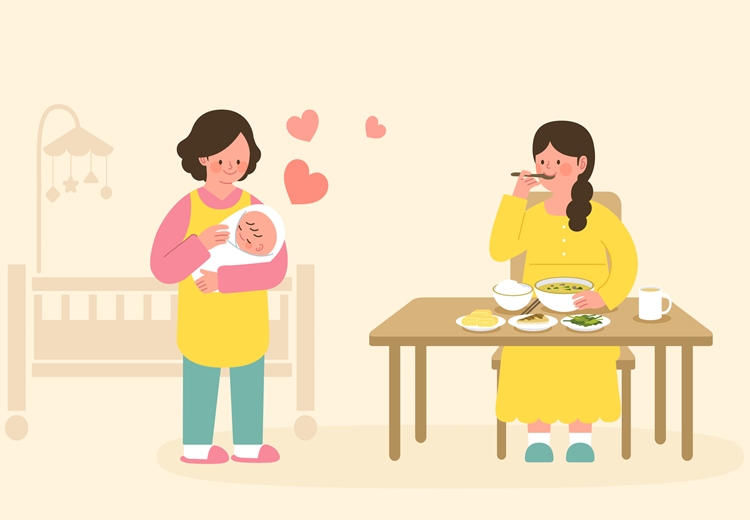
Professional Newborn Care and Education Services by Experts
Postnatal care centers offer professional newborn care and education services, supporting the healthy growth and development of newborns post-birth.
The first aspect involves basic newborn care, including bathing, diaper changing, and dressing. Professionals teach mothers these care techniques and guide them in properly caring for their newborns.
The second aspect is education on the health and safety of newborns. Postnatal care centers educate on the physiological characteristics and nutritional requirements of newborns, vaccinations, skin care, infant massage, and trapezius muscle training methods.
The third aspect supports the development of newborns. Postnatal care centers provide activities and games suitable for the developmental stages of newborns, promoting their cognitive, motor, and social development.
Health Management and Recovery Programs in Postnatal Care Centers
Postnatal care centers offer various programs for the health management and recovery of mothers, helping them maintain a healthy state and recover quickly after childbirth.
The first aspect includes exercise programs to aid physical and mental recovery. Postnatal care centers provide exercise programs led by professionals, improving mothers’ strength and flexibility for a healthy body.
The second aspect involves health check-ups and management. Postnatal care centers check the health status of mothers, providing necessary tests and treatments to prevent potential diseases and complications early.
Thirdly, it’s about nutritional management and diet programs. Proper diet and nutrition after childbirth are crucial for a mother’s recovery. Hence, postnatal care centers collaborate with dietitians to provide tailored diet and nutritional management. This enables mothers to develop proper eating habits and maintain a healthy state.

Cultural differences: Comparing postnatal care centers in Korea to those in other countries
Korean postnatal care centers have unique features compared to postnatal care systems in other countries. Firstly, they offer extended stays. It’s common in Korea to spend about 2 to 4 weeks in a postnatal care center after childbirth. This is to ensure ample time for recovery and childcare preparation.
Secondly, there’s a high level of expert involvement. Korean postnatal care centers are equipped with a system where doctors, nurses, dietitians, and counselors collaborate to care for mothers and newborns. This comprehensive support allows mothers to receive assistance in various aspects.
Thirdly, cultural elements play a role. Many Korean postnatal care centers offer services related to Korean culture, such as traditional Korean foods like Samgyetang and Japchae, Hanbok experiences, and traditional Korean herbal baths. These services provide mothers with the opportunity to experience and enjoy Korean culture.
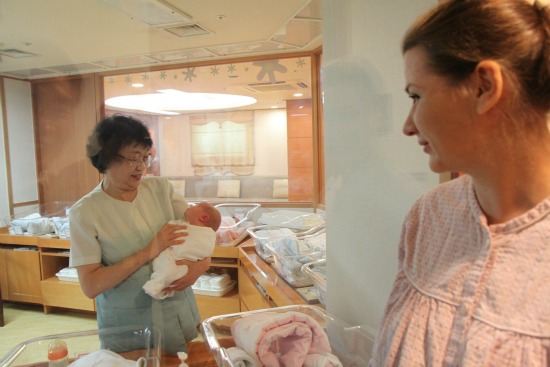
Reviews and experiences: Pros and cons of postnatal care centers according to mothers
Mothers who have used postnatal care centers share their experiences and reviews, highlighting both advantages and disadvantages. One major advantage mentioned is the comfortable rest and recovery time offered at the centers. Mothers can entrust daily chores and meals to professionals and get ample rest.
Another advantage is the support and assistance from professionals. Postnatal care centers are staffed with doctors, nurses, dietitians, and counselors who work together to care for mothers and newborns. This allows mothers to receive comprehensive support and professional help in times of need.
However, one downside mentioned is the cost. The high-quality services provided by postnatal care centers come at a relatively high price, which some mothers find to be a financial burden.
Value assessment: Evaluating the worth of using postnatal care centers
The value of postnatal care centers can be assessed by comparing the cost to the benefits. While experiences and needs may vary, mothers who have used these services generally report faster recovery and better health maintenance.
The diversity and quality of services and programs offered by postnatal care centers are also important factors in assessing their value. These centers provide comprehensive care and support for mothers and newborns during the postnatal period.
Lastly, the rest and stable environment offered by postnatal care centers are crucial for evaluating their benefit to mothers. Postnatal care centers provide a space where mothers can alleviate fatigue and stress, offering a conducive environment for rest.
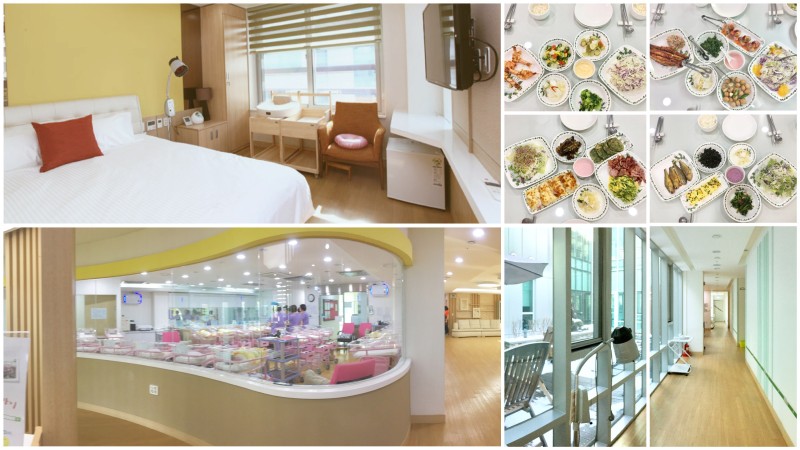
Tips for foreign users: Guide to using postnatal care centers in Korea
Before using a postnatal care center in Korea, it’s important to check when you can start using the services. Some centers require reservations for a certain period after childbirth.
For language barriers, request translation services. Some centers offer translation services for foreign users. It’s advisable to inquire in advance about availability and procedures.
Learning about and preparing for cultural differences can be helpful. Many Korean postnatal care centers offer culturally related services, providing opportunities to experience and enjoy Korean culture. Understanding and approaching Korean culture with a positive attitude is beneficial.
Lastly, it’s crucial to check prices and reservation information in advance and plan accordingly. Prices for postnatal care centers vary, and knowing the reservation timeline and procedures in advance can help in planning.
By following these tips, foreign users can more conveniently utilize postnatal care centers in Korea. These centers play an important role in supporting the recovery and health of mothers and newborns, offering a variety of services and programs, expert assistance, and a stable environment. Utilizing a postnatal care center can provide a more comfortable and stable environment for postnatal recovery and childcare, promoting the health and well-being of both mother and newborn. Therefore, postnatal care centers are a recommended option for many parents.



